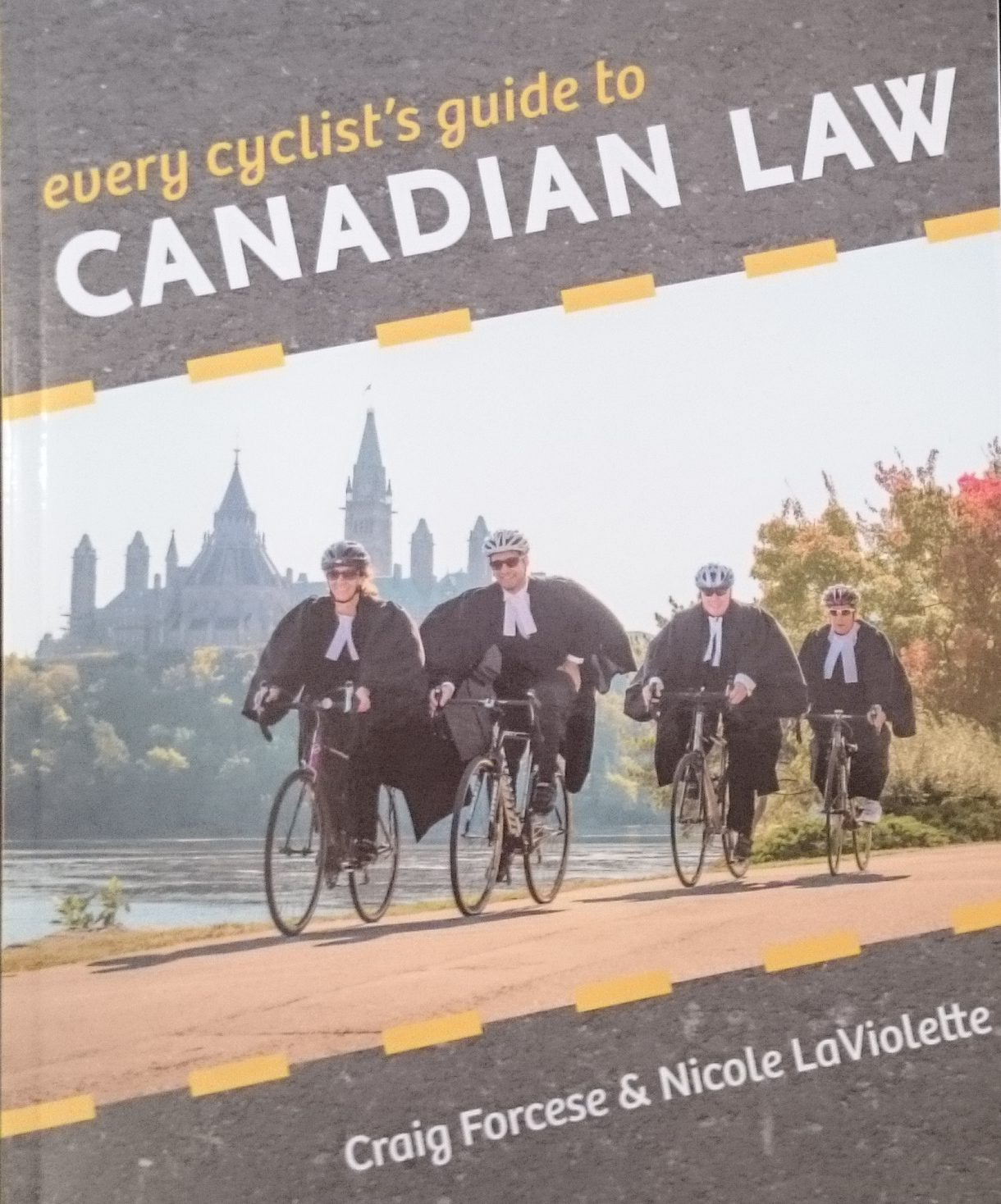Authors discuss Every Cyclist’s Guide to Canadian Law
I spoke with Nicole LaViolette and Craig Forcese is past fall at the Toronto International Book Fair about their new book, Every Cyclist’s Guide to Canadian Law. The work not only has information on traffic laws and safety, but facts about warranties on new bikes and even rules surrounding doping. The authors both teach law at the University of Ottawa. LaViolette focuses mostly on international law and refugee issue. Forcese says he teaches subjects that are even more obscure than cycling and the law. Both, however, are avid cyclists who saw a need for a book on cycling and Canadian law.

This past fall, Nicole LaViolette and Craig Forcese discussed their new book, Every Cyclist’s Guide to Canadian Law, at the Toronto International Book Fair. The work not only has information on traffic laws and safety, but facts about warranties on new bikes and even rules surrounding doping. The authors both teach law at the University of Ottawa. LaViolette focuses mostly on international law and refugee issues. Forcese says he teaches subjects that are even more obscure than cycling and the law. Both, however, are avid cyclists who saw a need for a book on cycling and Canadian law.
“Like many cyclists over the years, we’ve encountered all sorts of interpretations and misinterpretations of the law from fellow cyclists, drivers and even police officers,” Forcese said. “We thought it would be worthwhile to sit down and, in one place, archive the sum total of issues that really pertain to cycling.”
“We think it’s for every cyclist and that why we chose that as our title,” LaViolette said. “But we think it goes beyond the cyclists to coaches, club administrators, law enforcement officers who need to be informed, personal injury lawyers and insurance lawyers. So we really tried to make it accessible to as wide range of people who encounter cycling or engage in cycling as possible.”
In Canada, the traffic laws that govern cyclists fall under the jurisdiction of the provinces and territories. Some have special provisions for the human-powered, two-wheeled vehicles. Others, such as Saskatchewan, have no mention or definition of bicycles in the books. In Ontario law, the authors found one particularly quirky rule. “You are obliged as a cyclist, as everyone knows, to have a bell on your bike,” Forcese says. “But the Act actually says bell, horn or, if you read it fully, you are entitled to use a gong on your bike. I’ve never seen that. I’m not sure you can buy one on eBay. But it’s worth investigating.”
In the section on bicycle theft, the authors riff on the idea that it takes a particular kind of jerk to steal parts off your bike. They even have a section called, “The scale and scope of jerkiness.” LaViolette herself has been subjected to serious jerkiness. “I think we really wanted to convey that feeling we’ve all had when we come to get our bike, we’ve parked it somewhere in the city, and it’s been stripped or the wheels are gone,” LaViolette said. “In my case, I’ve had wheels taken off; I’ve had the bullhorns taken off the handlebars. I’ve lost just about everything except that bell that I really wouldn’t mind disappearing. But I’ve had just about everything done. And it does feel like, ‘Damn, what jerk would spend time doing this?’”
